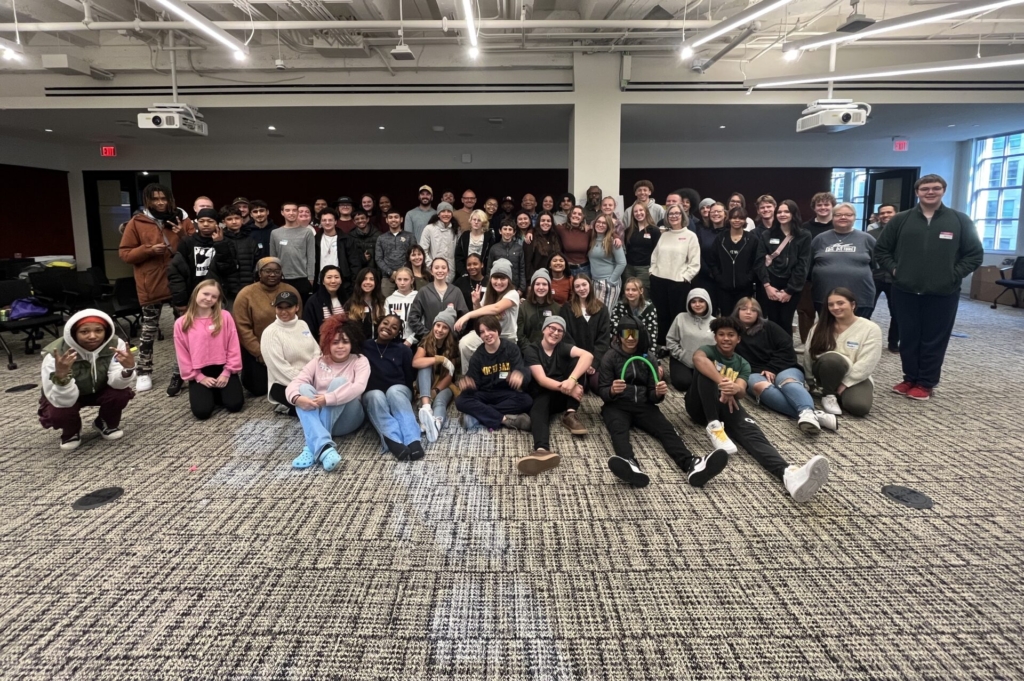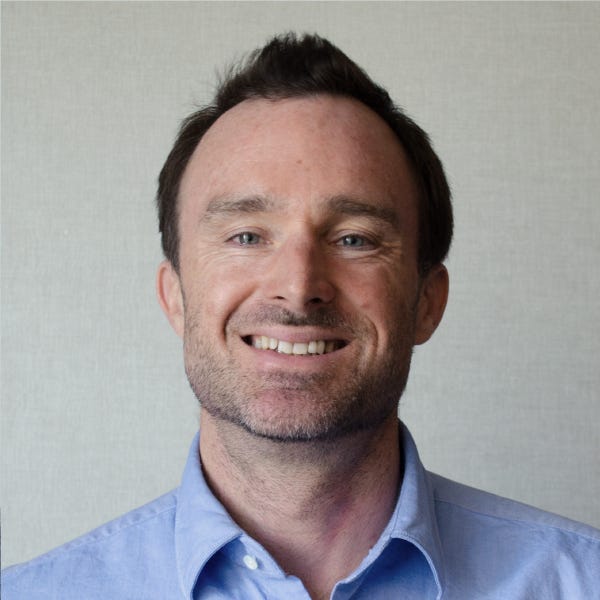Recently, there’s been a lot of talk about reimagining what education could be, but there hasn’t been much work to actually do it. This is one of the reasons this conference is so cool. Together, we’re accomplishing this.
Mackenzie, Young Learner at One Stone’s Lab51 School
This article was originally published by Sam Chaltain on his blog, Letters from the Future (of Learning). Sam, a longtime ally of Education Reimagined, attended our recent annual SparkHouse event, where we invite youth from learner-centered environments across the nation to convene, connect, and imagine what a learner-centered future could look like for every young person.
In Denver, Kai spends his weekdays learning business and interpersonal skills at his school’s coffee shop.
In Boise, Mackenzie tracks her personal progress against something called The Blob.
And in the Twin Cities, I’Yani explores her deep love of music with daily access to a state of the art recording studio.
Earlier this month, all three of them—along with dozens of other young people and adults from across the country—convened in the nation’s capital to swap stories, seed strategies, and weave new networks of influence that can, in time, thoroughly reimagine that timeworn thing we call “school.”
The central seed of that effort was first sown several years ago, when an organization called Convergence convened a select, ideologically diverse group of educators, policy leaders, and advocates (full disclosure: I was one of them) to see if they could agree on anything regarding the ideal future of education in America. After two years of dialogue and deliberation, that group coalesced around a vision statement for the future of education. And then, to make that vision a reality, Education Reimagined was spun out of Convergence as a separate organization—charged with making the ideal real, and finding ways to weave together the folks at the tip of the spear of educational innovation in America. Now, the organization is focused on accelerating the R&D needed to make learner-centered education and community-based ecosystems a widespread reality for all learners.
No part of that vision is more essential than what Education Reimagined calls “learner-centered education,” because, as founder and president Kelly Young puts it, “nothing less will offer the possibility of true liberation and equity in education.” Kelly explained, “If we’re going to get this right, we’re going to need every school to honor and value the humanity and dignity of each child. And we’re going to need to enable each young person to discover and bring forth their unique talents and passions in ways that contribute to their community and society. That’s the work.”
To help light that flame, Education Reimagined created SparkHouse, a two-day meeting at which folks from the country’s most forward-thinking schools and communities can come together, learn from one another, and strategize about how to spread the message of what a reimagined educational system must look like—and require. And central to that work is getting crystal clear on what learner-centered education is—and what it’s not.
To help, program leader Alin Bennett asked the group a seemingly innocuous question: How do you know a dog is a dog?
“Because it’s adorable and I want to own it immediately,” offered one young person.
“Because of its genetic makeup,” said another.
“Because it looks like a dog,” added a third.
“We know a dog is a dog because we have constructed a shared language domain around this thing we call dogs,” Alin explained, “and we’ve done it over thousands of years. That’s the way we connect as humans—around language and a shared understanding of the things in our world. And that’s what we’re doing today around the concept of learner-centered education.”
So, Alin continued, “What makes a learner-centered environment learner-centered?”
It’s a mindset, first and foremost. It’s not, however, about how much educators care about kids. It’s not about letting kids do whatever they want, whenever they feel like doing it. And it’s not exclusive to particular types of environments or populations.
What else is it, then?
The best way to create something more meaningful for learners is to listen to them.
Lindsy Ogawa, Senior Director of Practice and Field Advancement at Education Reimagined
At a Sharing Fair, each community got to explain what they loved most about their environment’s particular expression of learner-centered education.
For Spencer, a student at a rural Virginia school called Springhouse, it was “being able to really focus on what your passions are, and having the space to explore what you want to do and learn about.”
For Tavis, from Norris Academy in Wisconsin, it was a recognition that even though “adults think kids don’t care about education because they’re misbehaving or not paying attention or whatever, in reality, we’re just resisting this thing that is being done to us. A good learner-centered environment removes the resistance.”
And for Truth, the son of one of the SparkHouse program leaders (and a student in a traditional school setting), it was a revelatory epiphany. “Coming here and hearing you all describe what you’re living,” he said, “it’s what me and my friends are dreaming about at the lunch table. You’re actually invested in your education. It’s kind of amazing.”
According to Lindsy Ogawa, one of SparkHouse’s organizers, that’s precisely the point. “The main point of SparkHouse is to help learners know that they’re not just a part of some random local experiment—that it’s something larger. And to help them articulate the essence of what makes their experiences so special—and why everyone should have the opportunity to learn this way. The best way to create something more meaningful for learners is to listen to them.”
“Recently,” Mackenzie said, “there’s been a lot of talk about reimagining what education could be, but there hasn’t been much work to actually do it. This is one of the reasons this conference is so cool. Together, we’re accomplishing this. The revolution is underway!”

